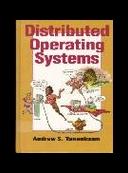Книга: Distributed operating systems
6.6. OBJECT-BASED DISTRIBUTED SHARED MEMORY
The page-based DSM systems that we studied use the MMU hardware to trap accesses to missing pages. While this approach has some advantages, it also has some disadvantages. In particular, in many programming languages, data are organized into objects, packages, modules, or other data structures, each of which has an existence independent of the others. If a process references part of an object, in many cases the entire object will be needed, so it makes sense to transport data over the network in units of objects, not in units of pages.
The shared-variable approach, as taken by Munin and Midway, is a step in the direction of organizing the shared memory in a more structured way, but it is only a first step. In both systems, the programmer must supply information about which variables are shared and which are not, and must also provide protocol information in Munin and association information in Midway. Errors in these annotations can have serious consequences.
By going further in the direction of a high-level programming model, DSM systems can be made easier and less error prone to program. Access to shared variables and synchronization using them can also be integrated more cleanly. In some cases, certain optimizations can also be introduced that are more difficult to perform in a less abstract programming model.
- Object Orientation
- 6 Distributed Shared Memory
- 6.2.6. Comparison of Shared Memory Systems
- 6.6.1. Objects
- 9.7.4. Memory Model
- 17. Object Reorientation: Classes
- 6.10. Методы класса Object
- 9.3.3. Distributed Shared Memory
- Shared Cache file
- EVENT MEMORY SIZE
- Chapter 16. Commercial products based on Linux, iptables and netfilter
- Distributed Denial of Service




